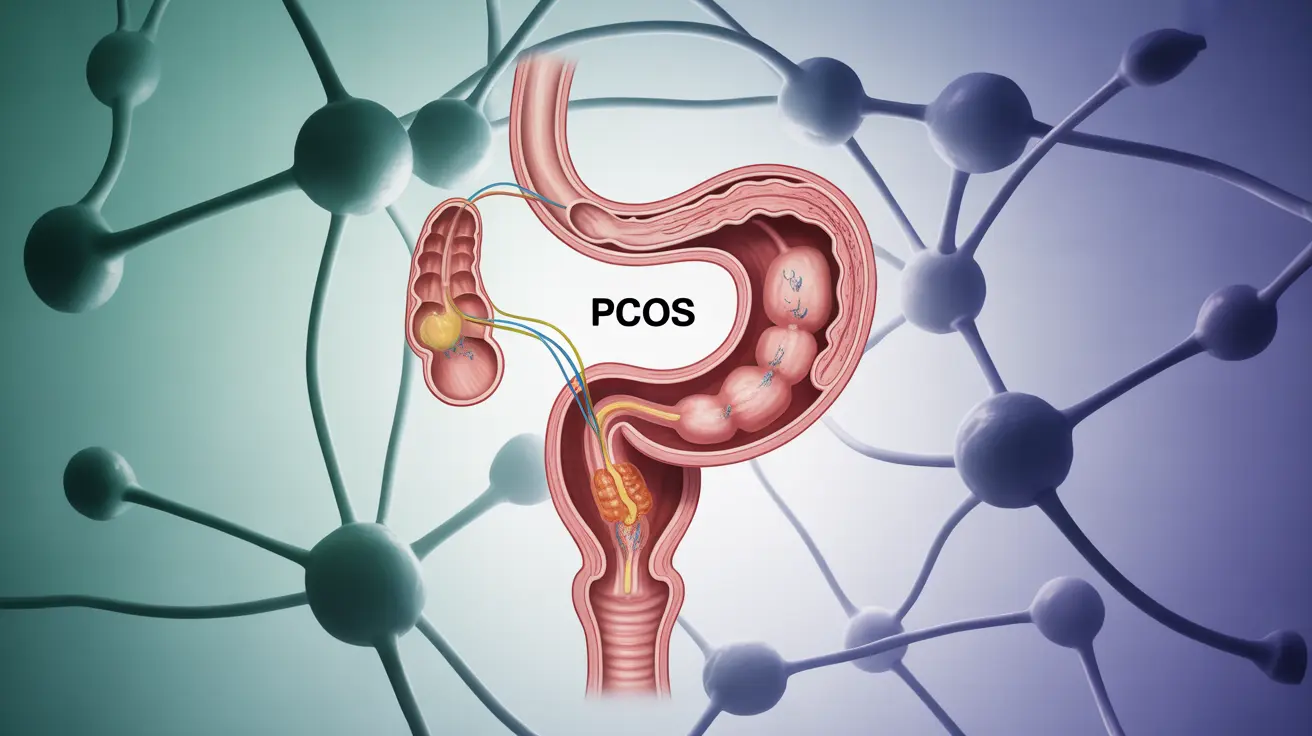For many women with Polycystic Ovary Syndrome (PCOS), digestive issues like diarrhea can be an unexpected and challenging symptom to manage. The relationship between PCOS and digestive health is complex, involving hormonal imbalances, inflammation, and potential medication side effects that can impact bowel function.
Understanding how PCOS affects your digestive system is crucial for developing effective management strategies and improving your overall quality of life. Let's explore the connection between PCOS and digestive symptoms, particularly diarrhea, and discuss practical solutions for managing these challenges.
The PCOS-Digestive Connection
PCOS can affect your digestive system in several ways. The hormonal imbalances characteristic of PCOS, particularly elevated androgens and insulin resistance, can influence gut motility and inflammation. This can lead to various digestive symptoms, including diarrhea, constipation, or alternating between the two.
Hormonal Influences on Digestion
The hormonal disruptions in PCOS can significantly impact digestive function. Insulin resistance, a common feature of PCOS, can affect how your body processes nutrients and maintains regular bowel movements. Additionally, elevated testosterone levels may influence gut motility and the balance of beneficial gut bacteria.
PCOS and IBS: A Common Connection
Research suggests that women with PCOS are more likely to develop Irritable Bowel Syndrome (IBS) compared to those without PCOS. This connection may be due to shared inflammatory pathways and hormonal influences that affect both conditions. Understanding this relationship can help in developing more effective treatment strategies.
Medication-Related Digestive Issues
Some medications commonly prescribed for PCOS management can affect digestive health. Metformin, a frequently prescribed medication for insulin resistance in PCOS, is known to cause digestive side effects, including diarrhea, particularly during the initial weeks of treatment.
Managing Metformin-Related Diarrhea
If you're experiencing diarrhea while taking metformin, consider these strategies:
- Start with a lower dose and gradually increase it
- Take the medication with meals
- Use extended-release formulations when possible
- Stay well-hydrated
- Discuss alternative options with your healthcare provider if symptoms persist
Lifestyle Management Strategies
Several lifestyle modifications can help manage digestive symptoms associated with PCOS:
- Follow an anti-inflammatory diet rich in fiber
- Stay adequately hydrated throughout the day
- Practice regular physical activity
- Manage stress through relaxation techniques
- Consider probiotic supplementation
- Keep a food diary to identify trigger foods
When to Seek Medical Help
Consult your healthcare provider if you experience:
- Severe or persistent diarrhea
- Blood in your stool
- Significant weight loss
- Severe abdominal pain
- Dehydration symptoms
- Fever accompanying digestive symptoms
Frequently Asked Questions
Does PCOS cause diarrhea or other changes in bowel habits? Yes, PCOS can cause changes in bowel habits, including diarrhea, due to hormonal imbalances, inflammation, and related metabolic changes. These symptoms may also be influenced by PCOS medications or concurrent conditions like IBS.
Why are women with PCOS more likely to have irritable bowel syndrome (IBS)? Women with PCOS are more likely to have IBS due to shared inflammatory pathways, hormonal imbalances, and metabolic factors that affect both conditions. The stress associated with managing PCOS may also contribute to IBS symptoms.
Can hormonal changes in PCOS lead to digestive symptoms like diarrhea or constipation? Yes, hormonal fluctuations in PCOS can affect gut motility and inflammation, leading to various digestive symptoms including diarrhea and constipation. Insulin resistance and elevated androgens can particularly impact digestive function.
What lifestyle changes can help manage diarrhea and IBS symptoms in women with PCOS? Key lifestyle changes include following an anti-inflammatory diet, staying hydrated, regular exercise, stress management, and identifying trigger foods through food journaling. Probiotic supplementation may also be helpful.
How do medications for PCOS, such as metformin, affect digestive health and cause diarrhea? Metformin can cause diarrhea as a common side effect, especially during initial treatment. This typically improves with time, but can be managed by starting with lower doses, taking medication with meals, or using extended-release formulations.




